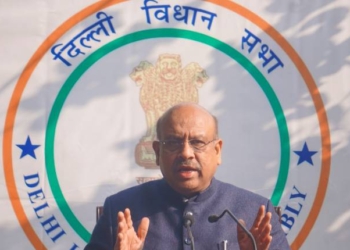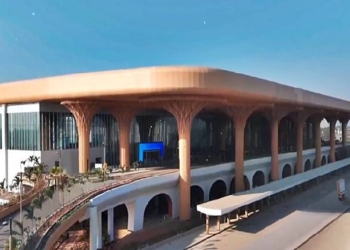Gandhinagar: Gujarat Police have nabbed more than 200 Bangladeshi nationals residing unlawfully across various parts of the state. The operation, carried out over the past few days, has now entered the deportation phase, with authorities initiating legal procedures to repatriate those detained.
The development was confirmed by Gujarat Director General of Police (DGP) Vikas Sahay, who posted an update on social media platform X, stating: “In the last 100 hours, more than 200 illegal Bangladeshis have been caught by Gujarat Police. Further legal action for deportation is under progress.”
Among those detained, 44 individuals were arrested by the Bharuch Police’s Special Operations Group (SOG) from Bharuch city, Ankleshwar city, and the Ankleshwar GIDC area. These areas have previously been flagged for housing undocumented workers employed in informal sectors.
Most of the illegal migrants had settled in industrial and semi-urban zones, often working in construction, agriculture, domestic services, or small factories for low wages.
These locations — especially Ankleshwar GIDC, Chandola, and parts of Surat and Ahmedabad — have emerged as infiltration hotspots due to high labor demand and limited documentation checks.
Migrants typically enter India via porous land borders in eastern states like West Bengal and Assam, before moving westward with the help of trafficking agents and networked intermediaries.
Gujarat’s Anti-Terrorism Squad (ATS) and local police have also uncovered widespread use of forged documents, including Aadhaar, PAN, ration cards, and even Indian passports, used to establish residency and secure employment.
The primary motivation behind such infiltration is economic hardship in Bangladesh, coupled with the availability of work and support networks in Gujarat’s informal economy.
Many migrants arrive through human trafficking networks that supply false identity papers and place them with employers willing to pay below-market wages. These illegal setups are often difficult to trace unless targeted by coordinated enforcement.
The Gujarat government has responded by launching one of its most comprehensive enforcement campaigns to date, involving units like the Crime Branch, ATS, Special Operations Group (SOG), and Anti-Human Trafficking Unit (AHTU).
Employers in key districts are now being asked to submit proof of identity and legal status for all migrant workers under a new standard operating procedure.
While deportation efforts are ongoing, state authorities are also engaging with the Border Security Force (BSF) and central agencies to ensure long-term tracking and repatriation of infiltrators.















